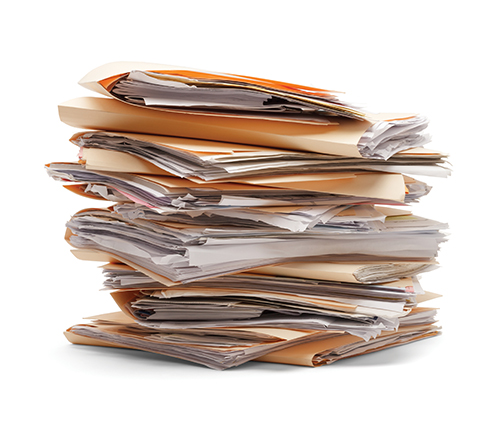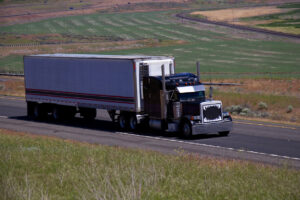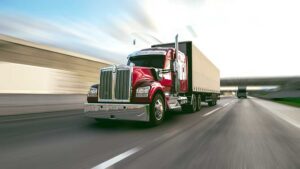Everyone loves a tax deduction, and billions of dollars are spent each year making sure those deductions are maximized. When you own your own business, however, tax deductions can have a huge impact on your profit and loss statement.
When you become an owner-operator, you’ve gone into business. You’ll pay income tax on the profit (the cash left over after your expenses are paid). You’ll pay another tax, too — the self-employment tax. When you work for someone else, 6.2% of your income is collected for Social Security tax and another 1.45% for Medicare tax. The total, 7.65% of your income, is only half the total tax. The other half is paid by your employer.
When you’re self-employed, you pay both halves, or a total of 15.3%. That’s on top of the income tax, which starts at 10% and goes up. That’s more than a quarter of your profits gone to taxes — and it’s why deducting every business expense you can is vital to the bottom line of your business. Your goal is to show as little profit as possible on your taxes.
If you’re paid on a Form 1099, you’re considered a contractor, not an employee, even if you are driving someone else’s truck. That makes you self-employed, too.
The business deductions begin as soon as your business does. Any fees you pay for authority, registration, permits, tolls and other expenses are deductible. You’ll be paying for a variety of insurance policies, possibly including truck insurance such as liability, collision and comprehensive, etc. You’ll spend for a worker’s compensation or occupational accident policy. Personal health policies for you and your family may be deductible, too.
Save every receipt. If you purchase something online, save that receipt, too. Receipts for fuel, repairs, and maintenance and truck items are a no-brainer, but drivers often overlook smaller expenses that add up. Products like cleaners and accessories for the truck — including bedding, air fresheners and other items — can be considered business expenses. Tools, flashlights and batteries, sunglasses and other items are business expenses that can be claimed if they’re used for the business.
If you rent clothing or purchase items with your business logo, such as hats and shirts, you can most likely deduct those costs. Safety equipment, such as steel-toed shoes or boots, goggles, hard hats and gloves, are business expenses.
Rain gear may be deductible, and the IRS allows a deduction for a percentage of phone and internet expense.
Industry publications can also be business expenses, too, and dues to trucking unions or organizations such as the Owner-Operator Independent Drivers Association (OOIDA) are business expenses. You use both in your business, so take maximum advantage.
If you claim the standard IRS deduction for meals and incidentals, your records should include documentation of the days you spend away from home. Copies of your records-of-duty status will do the trick, but if you’re using electronic logs you may need a printout for your records in case of an audit.
Motels, parking fees and shower costs that aren’t reimbursed may be deductible. Don’t forget ATM or fuel card fees, and if your bank charges service fees for your business account, subtract those, too
The timing of purchases can impact your business, too. Take steer tires, for example. A quality set can easily cost $1,000 including mounting and balancing. If the year is coming to an end and you’ve made a tidy profit that you’d like to reduce your taxes on, you’ll want to spend that $1,000 before the calendar runs out at the end of the year. That’s another $1,000 that you won’t have to pay the 25% or more tax on, since it’s no longer counted as profit.
On the other hand, if you expect that your business will break even or even show a loss for the year, it might be better to hold off on that tire purchase until after Jan. 1, so the expense counts for the following tax year instead.
You can make the same type of decision about needed repairs or other expenses, including the last fuel fill of the year. You may even be able to pay your insurance bill early so you can count the expense for the current calendar year — although paying that premium late is not an option.
Don’t forget depreciation. Your truck, for example, loses value over time, and the IRS allows you to claim that loss against your earnings. Rather than claiming the purchase price as an expense in the year you bought it, you would spread that expense over the life of the asset, generally five years, so you would benefit from a tax deduction each year.
Other types of property, such as phones, computers and even the garage you had built for the truck may be deductible. However, the rules can be complicated. Unless you’re a tax expert, it’s wise to get professional help (an added benefit is that the cost of tax service is deductible, too).
Let’s clear up one common misconception. Deductions for expenses can lower your tax burden — but you’ve still spent the money. “Writing off” an expensive purchase may mean saving the tax you would have paid on the money used for the purchase, but the cash is still spent. It does NOT mean that the item was free.
If you don’t already have a tax advisor, find one. Don’t wait until tax time. A good tax professional can provide business advice that can help you minimize your tax obligation. Make sure your advisor knows the trucking business. While there are similarities with other business types, there are some unique characteristics in trucking that impact your tax liability. Discuss your business plan with your tax professional as early as possible.
As a self-employed individual, you may be subject to making quarterly payments of your estimated income tax. Your tax adviser can help keep you in good standing with the IRS while keeping the payments as small as possible.
If you wait until tax time, you might easily find someone that can complete tax forms for you, but you need to be confident that your advisor knows the trucking business and is taking advantage of every opportunity to save you money.
Owning your own trucking business can be a rewarding experience, but just how rewarding may depend on how well you manage your expenses and tax liability.
Editor’s note: The advice offered in this article is not that of an accountant or tax attorney. The intent of this article is to offer helpful tips — not apply tax law and accounting processes to every situation.
Cliff Abbott is an experienced commercial vehicle driver and owner-operator who still holds a CDL in his home state of Alabama. In nearly 40 years in trucking, he’s been an instructor and trainer and has managed safety and recruiting operations for several carriers. Having never lost his love of the road, Cliff has written a book and hundreds of songs and has been writing for The Trucker for more than a decade.












Excellent information please keep doing it Me and somebody else need to read about this I hope every truck driver had their own bookkeeper someone to trust to do the income tax returns